

Uh oh...
It appears that you're using a severely outdated version of Safari on Windows. Many features won't work correctly, and functionality can't be guaranteed. Please try viewing this website in Edge, Mozilla, Chrome, or another modern browser. Sorry for any inconvenience this may have caused!
Read More about this safari issue.

As we celebrate Black History Month, it’s essential to honor the women who have shaped Arkansas’s history with their resilience, leadership and vision. These trailblazers, who broke barriers in education, civil rights, politics, medicine and business, challenge us to carry their determination in our spirits. Their stories remind us of the power of perseverance and the impact of service to one’s community.
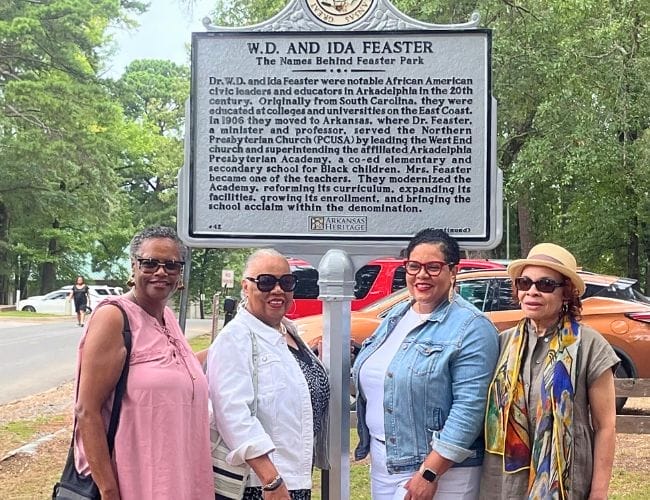
Ida Feaster | Arkadelphia
Ida Feaster was a leader in education when access to quality schooling for Black children was scarce. She and her husband, W.D., moved from South Carolina to lead an academy in Arkadelphia. Feaster dedicated her life to teaching, mentoring and improving education in Arkansas. She also played a pivotal role in advocating for equitable resources for Black students, ensuring they had opportunities to thrive despite systemic challenges. During segregation, she allowed part of her land to be used for black children to play baseball and hold family reunions. Today, the City Park in Arkadelphia, on the original land donated by the Feasters, bears their name and remembers their contributions to the community.
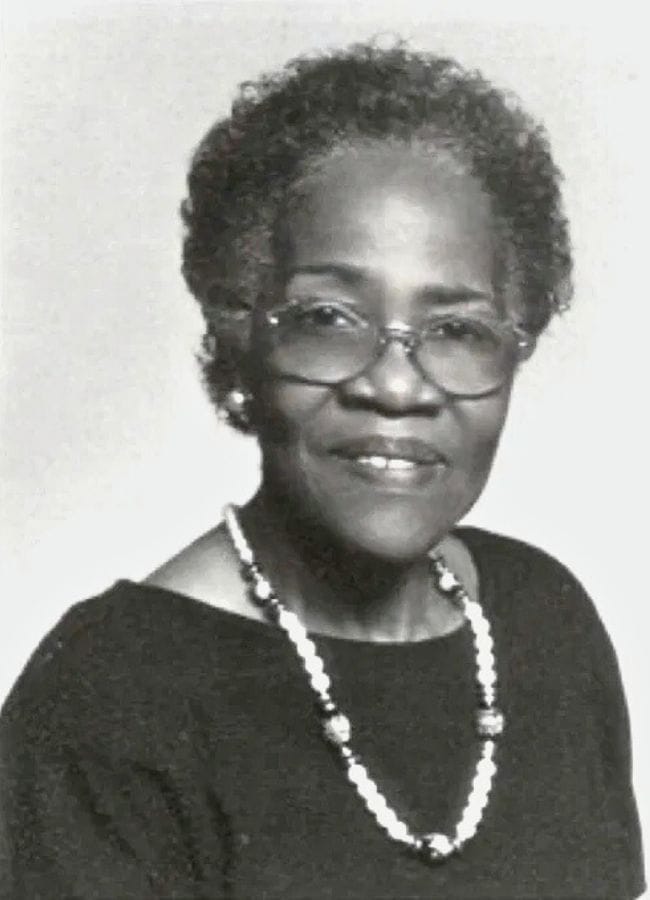
Theressa Hoover | Fayetteville & Little Rock
Theressa Hoover was a groundbreaking figure in religious leadership, serving as the first Black woman elected as an executive in the United Methodist Church. Born in Fayetteville, Hoover devoted her life to advancing social justice and advocating for marginalized communities and women who fell into the “triple jeopardy,” female, black and Christian. She was known for her strong communication skills and used those to represent women of color through the most challenging years of integration. Her achievements opened doors for women in ministry, and her leadership helped shape policies that promoted inclusivity and equity within the church.
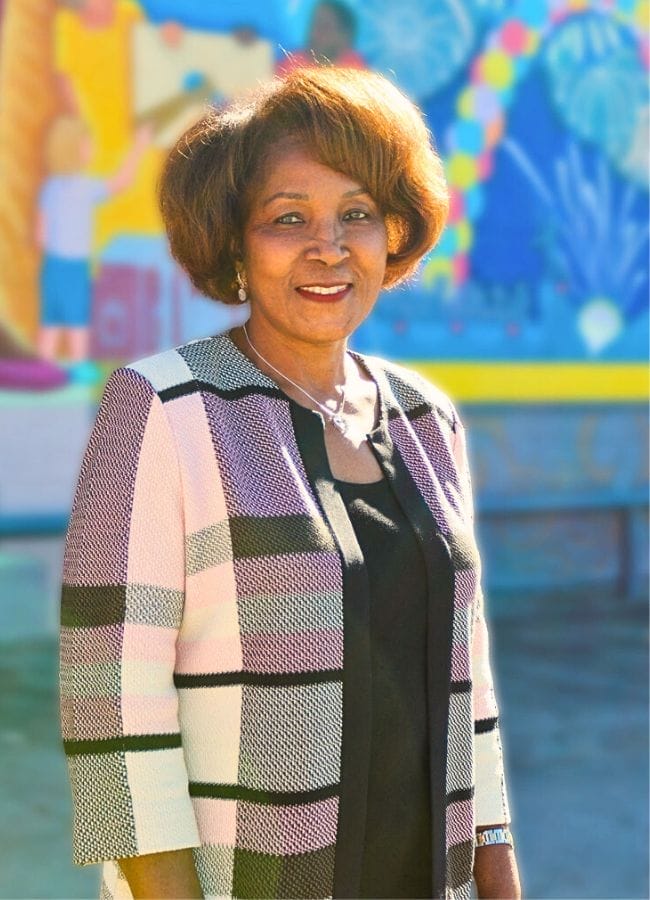
Martha Dixon | Arkadelphia
Martha Dixon’s journey is a testament to perseverance and creativity. Growing up in Arkadelphia as the child of sharecroppers, Dixon discovered her love for design and fashion at an early age. She pursued her passion despite limited resources, eventually launching a clothing line that gained international acclaim. Dixon’s talent and vision earned her recognition as a world-renowned designer, and her creations have graced numerous runways and red carpets. One of her crowning achievements was designing a ballgown for Hillary Clinton, a moment that cemented her legacy as a trailblazer in the fashion industry.
Annie Zachary Pike | Pine Bluff
Annie Zachary Pike was a trailblazing civic leader who became the first Black woman elected to the Jefferson County Quorum Court, the first black woman appointed to a state board, and later several national boards by President Nixon. Her efforts to advance education, health care, and housing significantly improved the lives of Pine Bluff residents. Using her developed land, Pike was instrumental in advocating for creating public housing units and allowing poor, working-class African Americans to own their homes. Her legacy as an advocate for Arkansas farming communities and advocacy for the poor earned her a national reputation as someone who cared and fought for social justice where it matters most.

Image provided by the Arts and Science Center of Southeast Arkansas, Women of the Delta project.
Ethel Beatrice Dawson | Pine Bluff
Ethel Beatrice Dawson was a dedicated educator, civil rights community advocate, and defender of political access who worked tirelessly to improve educational opportunities for Black students in Arkansas. After receiving her home economics degree at UAPB, she developed innovative teaching methods as a home demonstration agent and established after-school programs to support children’s learning and personal growth. Dawson spoke out strongly about the injustices for black agrarians, encouraging them to speak up with involvement in voting and running for office. In retirement, she moved her efforts to the next generation, serving with the local Student Nonviolence Committee, on the school board, and actively helping people register to vote.
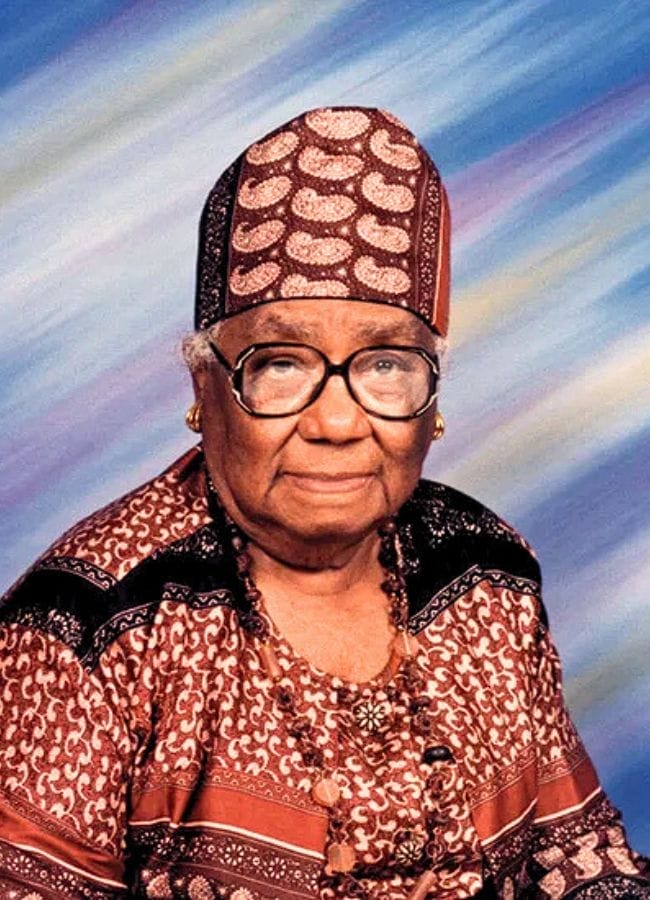
Evangeline Brown | Dermott
Evangeline Brown was a teacher, community activist and racial and social justice advocate. She worked to redistrict Arkansas to increase Black voting rights, a vital step in ensuring equitable representation in government. Brown also campaigned for hospitals to provide rape kits for African American women, highlighting the need for equal access to medical care and justice. As a champion for children, she was committed to improving the lives of foster children and coordinated the first local Head Start program, which provides early education to underprivileged youth. She garnered herself a reputation as a fierce woman who fought for what was right!
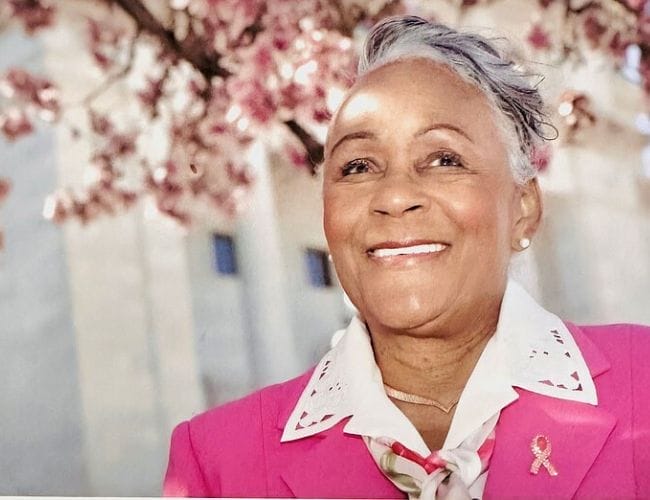
Josetta Wilkins | Pine Bluff
Josetta Wilkins was a champion of women’s health and political representation. She served four terms in the Arkansas House of Representatives and, in that role, brought wider access to breast cancer awareness and early detection programs, including $71 million for breast cancer education for Arkansas women. Wilkins’ commitment to public health has saved countless lives, and the Governor’s Breast Cancer Control Advisory Board annual award bears her name. Her advocacy helped create lasting change in public health policy and access to critical resources. We must not forget her 40 years as an educator and counselor in Arkansas public schools and UAPB professor.

Sue Cowan Williams | Eudora
Sue Cowan Williams was a pioneering educator and civil rights advocate in Arkansas. She is best known for her role as the lead plaintiff in the 1942 lawsuit S. W. Tucker v. the Little Rock School District, which successfully challenged unequal pay for Black and white teachers. Williams’s courageous stand against systemic injustice helped pave the way for more significant equity in education despite her personal losses in the process. She was a beloved teacher who inspired countless students with her dedication and passion for learning.
Honoring a Legacy of Leadership
These Black women embody the courage, creativity, and determination that define Arkansas’s history. From civil rights activism to art and education, their contributions have shaped the state and left an indelible mark on our nation.
Over the years, we’ve shared the stories of other pioneering Black women with Arkansas roots:
- 6 Women of Color Making a Difference in Arkansas
- Pioneering African American Arkansans
- Arkansas Black History Firsts
- More Arkansas Black History Firsts
- Arkansans to Celebrate in Black History Month
- 7 Remarkable Black History Stories
- Arkansas’s Trailblazers
- 3 Arkansans who Pioneered their Field
- Harding Honors First African American Alumni
- “Firsts” exhibit at Ouachita
- 6 Arkansas Leaders in Black Education
- Arkansas Poets You Should Know
- 6 Black Performers to Know
- Dorothy McFadden Hoover | No Longer Hidden
- Senator Irma Hunter Brown: Trailblazing Legislator
- Charlotte Tidwell’s Superpower
- Spotlight on Cynthia Scott
- Leah Patterson | MOVE Makeup
- Fashion in the Natural State: Korto Momolu
- Josephine Packney’s Dream
- Rose Marie McCoy | Musical Prodigy
As we celebrate Black History Month, let these stories remind us of progress and the work still ahead. Their legacies are a beacon of hope, encouraging us to build on their accomplishments.
We do the work.
You check your email.
Sign up for our weekly e-news.
Get stories sent straight to your inbox!









Like this story? Read more from Keisha Pittman McKinney
Some Arkansas stories are loud. They announce themselves with roadside...
Arkansas has always influenced its people, especially those who carried...
When most people think of school integration in Arkansas, they recall the...
Join the Conversation
Leave a Comment